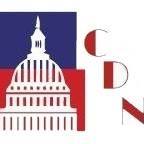



On May 20, the Congressional Budget Office (CBO) released its estimate for the negative impact of the Big, Beautiful Bill (BBB) on the nation’s deficit and public debt. The CBO, which has been notoriously inaccurate with its estimates in the past, really missed the boat on this one.
One part of the BBB, which was recently passed by the House of Representatives, is to make the 2017 tax cuts permanent for all Americans. Some additional tax cuts were added to the bill for specific groups of Americans. In addition, the bill reduces government spending by making some programs more efficient and less costly.
The CBO estimates that the tax cuts will increase the federal deficit by $3.8 trillion over the next ten years. That is an inaccurate conclusion. Looking at the tax cuts passed in 2017, we find that total tax revenue collected by the federal government increased in every year following the tax cut until the pandemic-induced recession.
This happens because the lower tax rates lead to more economic activity and more taxable income. In 2018, the economy grew at a 3% rate, which we hadn’t seen in more than a decade.
With Trump’s trade policy, nearly all foreign markets will be open to US producers, which will increase annual growth to the 4% range.
That means total tax revenue received by the federal government will increase. Therefore, the tax cut will not add one penny to the deficit.
To be fair, the CBO would argue that even if it were true that total tax revenue increased after the 2017 tax cut, the increase would have been much larger at the higher tax rates. But that is not a certainty. It assumes that the total income generated in the US would be the same at the higher tax rate. That is a faulty assumption.
While the economic literature is mixed when determining the effect of tax rate changes on economic growth, most recent studies conclude that higher tax rates tend to slow economic growth. Lower tax rates tend to increase economic growth, which increases income.
All that is factually known is that after the 2017 tax cut, the increase in economic activity led to more total tax revenue.
The BBB will cut government spending. Over the same time period, CBO estimates government spending will be reduced by more than $1 trillion, mostly by removing waste, fraud, and abuse from Medicaid, food stamps and other programs. The House of Representatives estimates a $1.5 trillion reduction in spending.
If tax revenue increases and government spending decreases, then the effect will be to reduce annual deficits, not increase them.
This is a model which was used by President Clinton. In 1996, the capital gains tax rate was lowered from 28% to 20%. The impact was very positive. Total tax revenue increased mostly because the tax cut resulted in the economy growing by more than a 4% annual rate for the next four years.
At the same time, Clinton worked with Speaker of the House Newt Gingrich to reduce government spending. For the next four years, the federal government eliminated the deficit and ran a surplus in the budget.
Much of the reduction in government spending came from Clinton’s workfare instead of welfare. Able bodies Americans who could support themselves were taken off the welfare rolls.
Most of the spending cuts in the BBB will impact those Americans who are currently collecting benefits but who are physically and mentally able to work to pay for their own needs.
The BBB will keep tax rates low. In addition, the bill eliminates taxes on tips, which will be a huge benefit for those in the hospitality industry. The bill also eliminates taxes on Social Security, which will be a huge benefit for retirees. And, as an incentive to encourage workers to work more, taxes on overtime pay are also eliminated.
At this point, it is critical that the Senate pass this bill without too many modifications.
Eventually, more reductions in government spending will occur as the increased growth provides more opportunities for Americans, so they don’t need government handouts.
While the BBB is not perfect, it is a good first step in restoring economic stability, despite what the CBO says.
Agree/Disagree with the author(s)? Let them know in the comments below and be heard by 10’s of thousands of CDN readers each day!
economics Politics Trump Administration